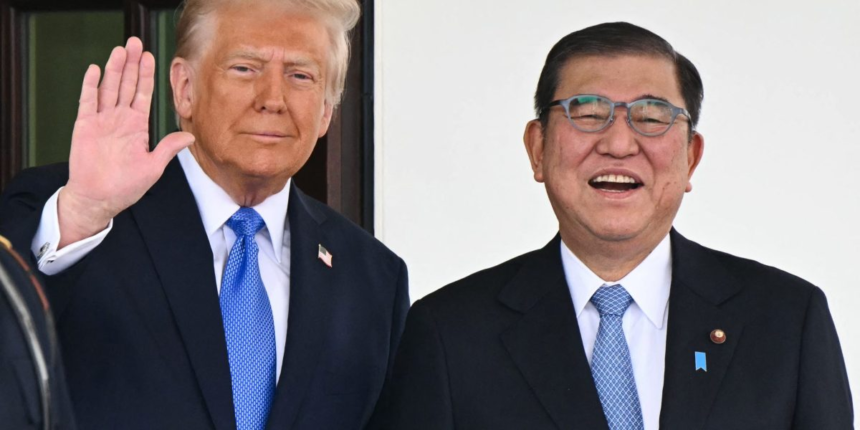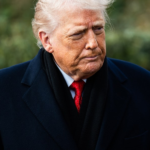The pledge from Japan to invest $550 billion in key U.S. industries could show other countries how to clinch a trade deal with the U.S., even as analysts question how real that money is.
Still, Treasury Secretary Scott Bessent highlighted the fund as a key reason the U.S. and Japan were able to settle on a levy that was lower than the 25% rate Trump had threatened earlier.
Both countries have similar trade characteristics with the U.S., such as high current account surpluses, high U.S.-bound exports, and less open domestic markets via non-tariff measures, the bank said in a note on Friday.
At the same time, the U.S. is also negotiating deals with the European Union and other trading partners ahead of an Aug .1 deadline, when Trump’s pause on his reciprocal tariffs will expire.
But Wall Street has serious doubts that the $550 billion will actually materialize. Takahide Kiuchi, executive economist at Nomura Research Institute and a former Bank of Japan policymaker, said in a note Wednesday that the investment pledge is merely a target and not a binding promise.
“In reality, under the Trump administration, many Japanese companies likely view the business environment in the U.S. as deteriorating due to tariffs and other factors,” he explained. “Furthermore, at current exchange rates, labor costs in the U.S. are extremely high, providing little incentive for Japanese firms to expand investment there. If anything, we may see a stronger trend toward diversifying investments away from the U.S.”
Meanwhile, Council on Foreign Relations senior fellow Brad Setser, a former U.S. Trade Representative advisor and Treasury Department official, similarly expressed skepticism about the money.
A source familiar with the matter acknowledged to Fortune that a lot of details of the $550 billion investment have yet to be ironed out. That includes the time frame of the investment as well as an advisory board and guardrails against potential conflicts of interest.
But the source added that the investment would be funded by the Japanese government and is not a just pledge from Tokyo to buy commodities or for Japanese companies to steer investments into the U.S.
It also means Japan is fronting the cash to finance projects that are likely to be in the private sector, the source said, offering a hypothetical example of a chip company looking to build a U.S. plant.
Under this scenario, the investment vehicle could finance construction of the factory and lease it out at favorable terms to the chip company, with 90% of the rent revenue going to the U.S. government.
The $550 billion pledge also comes as Trump’s tariffs face legal challenges, with a court hearing scheduled Thursday on whether the president has authority under the International Emergency Economic Powers Act to impose wide-ranging duties.
That could make it attractive for countries to promise a lot of money sometime in the future to obtain immediate tariff relief, while running out the clock as legal battles play out.
“Our trading partners and major multinationals know Trump’s tariffs are on shaky legal ground,” they wrote. “Therefore, we find it hard to believe many of them are going to make massive investments in the U.S. they would not have otherwise made in response to tariffs that may not last.”









